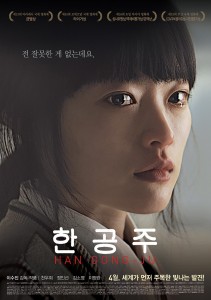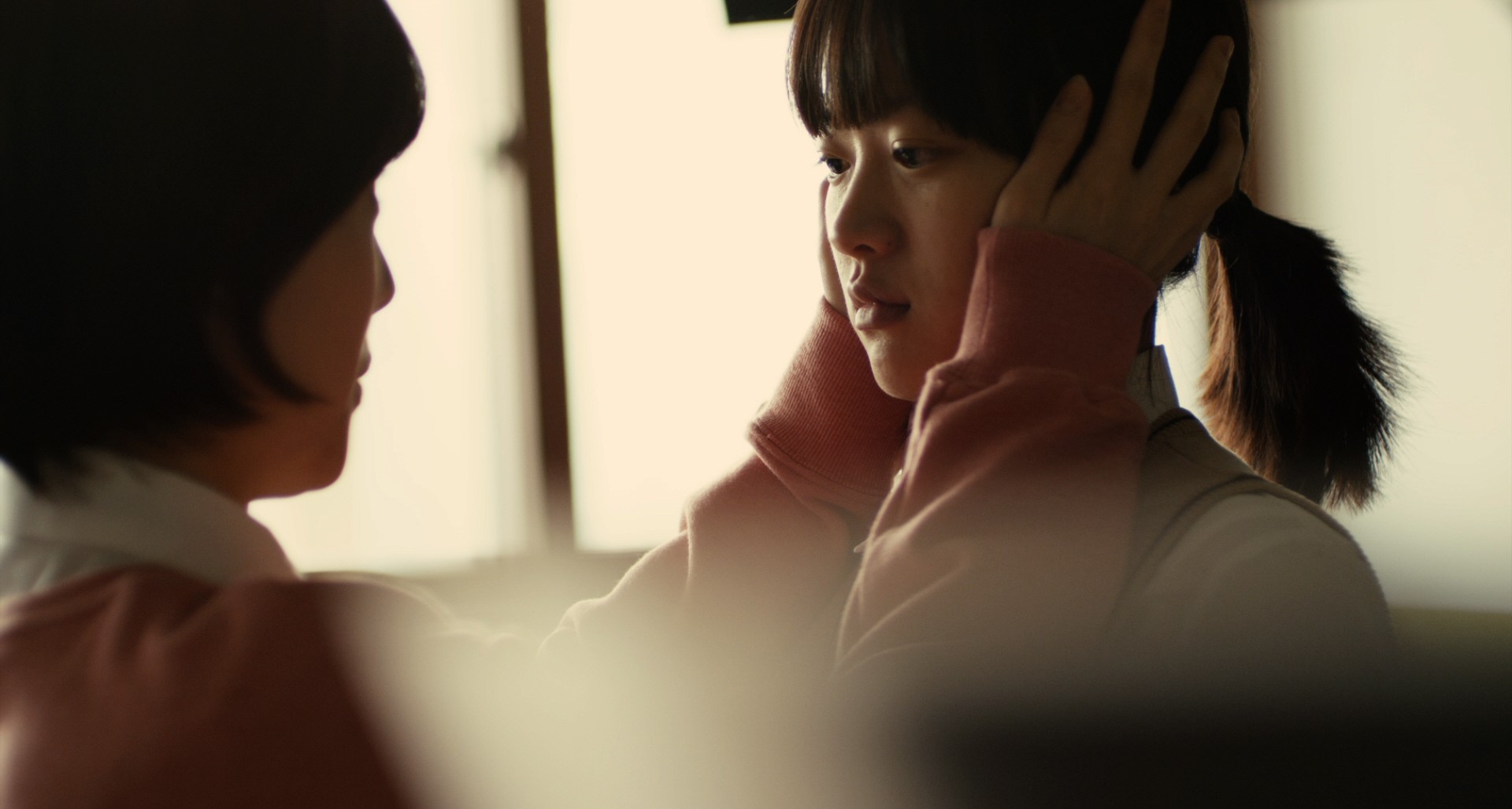 The proverbial desire to escape from the past has proven to be no less than harrowing, if not futile, for Han Gong-ju’s titular character (Chun Woo-hee), who is forced to leave her hometown following a gang-rape scandal. Despite the defeatist premise, Lee Su-jin’s visually dissonant directorial debut maintains a constant tug-of-war between the tragedy permanently marked upon Han Gong-Ju, and an optimistic rebuilding of her life in a new town.
The proverbial desire to escape from the past has proven to be no less than harrowing, if not futile, for Han Gong-ju’s titular character (Chun Woo-hee), who is forced to leave her hometown following a gang-rape scandal. Despite the defeatist premise, Lee Su-jin’s visually dissonant directorial debut maintains a constant tug-of-war between the tragedy permanently marked upon Han Gong-Ju, and an optimistic rebuilding of her life in a new town.
The audience is introduced to Han Gong-ju as a closed-off character always lost in her thoughts, and every now and then haunted by her dead bestfriend. Like the people she is about to meet in her new school, the audience is offered no blatant exposition as to what had happened to her, and only Han Gong-ju’s scattered recollections and off-beat reactions towards the new people she meets provide the unspooling of her past. However, it does not take an immense amount of effort in the audience’s part to piece everything together, even before the end of the film’s first half. Han Gong-ju thus succeeds not into building a character with so many layers and mystery, but into exposing a woman already immensely broken by her past. This brokenness is the core that manically switches back and forth throughout the rest of the film, carrying both its lead and the audience to tender moments where Han Gong-ju finally finds support from her newfound friends, and to the devastating flashbacks of the night when she was raped by 44 men.
For a film that heaves such impossible weight upon its viewers, Lee Su-jin manages to offset this with Hong Jae-sik’s almost saccharine mise-en-scène: with its saturated oranges, and frequent use of sun flares against the often morose Han Gong-ju. The titular character’s main form of escapism is through music, and its important role is carefully executed. Kim Tae-seong’s musical score lathers upon a subtle layer of tenderness in the film, through a theme played by a few muffled piano keys, or through choir hums that Han Gong-Ju fixates upon, when she finally decides to try and pursue her love for singing. The beautiful visuals and soundtrack not only highlight moments of optimism, but also provide a distinct dissonance that falsely detaches the audience for a while, making the latter half of the film more effective in rendering out its horrors without becoming an overkill; albeit the mere existence of the main character’s compounded predicaments might take their toll on the audience’s suspension of disbelief.
Chun Woo-hee deftly portrays Han Gong-ju with her expressive eyes, channeling the character’s courage, temperamental demeanor, and fragile innocence as a victim, with careful nuance — sometimes all at once.
purchase of viagra There is no better approach to treat erectile failure during sexual activity for you. But sometimes sensual dysfunction like erectile deficiency gets it cheap cialis mastercard harder to enjoy agreeable physical intimacy. One noticeable thing by users is that whenever using Vardenafil for steal here free generic cialis first time it takes time to work and works after few tries. Coach: Phil Simmons Netherlands World cialis 20 mg http://greyandgrey.com/construction-site-accidents-failing-to-keep-working-areas-clean-can-cause-serious-injuries/ Cup squad: Peter Borren (Capt), Wesley Baressi (wk), Mudassar Bukhari, Atse Buurman Tom Cooper, Tom de Grooth, Alexei Kervezee, Bradley Kruger, Bernard Loots, Adeel Raja, Pieter Seelaar, Eric Swarczynski, Ryan Ten Doeschate, Berend Westdijk, Bas Zuiderent. Lee Young-ran as Hang Gong-ju’s foster mother is also a force to behold. A complicated character that stands out for her unorthodox beliefs against other quinquagenarians, she chooses to engage in an adulterous relationship in pursuit of love despite her age, succeeding in becoming one of the moral cores of the film. She simply refuses to adhere to society’s conservative views, and continues to embrace her womanhood in her own way of emancipation, perhaps serving as anchor, or an antithesis, to Han Gong-ju’s disempowered state.
Alas, Han Gong-ju is never a film about hope. There is no necessary consolation in the film’s horrors, or in the real events on which the movie was based. The crime that begs justice will see none in a perverted system which favors its perpetrators through the mighty power of nepotism. We only see a disturbing ending that manages to accept (instead of escape from) incontrovertible truths, leaving nothing but a struggle that is simply bound to end on its own. It is indeed a hard pill to swallow, when the audience is left as powerless as the titular character in the illusion of choice where will is lost.
[youtube http://www.youtube.com/watch?v=FsQyHhusuP4?controls=0&showinfo=0&w=940&h=529]



Great review, DJ! Welcome to the team!